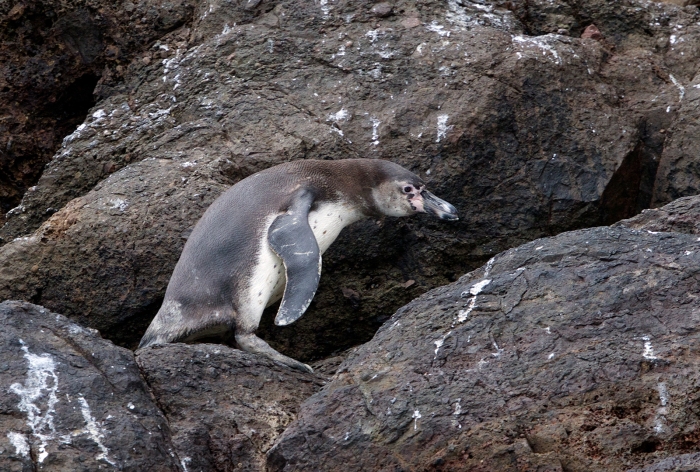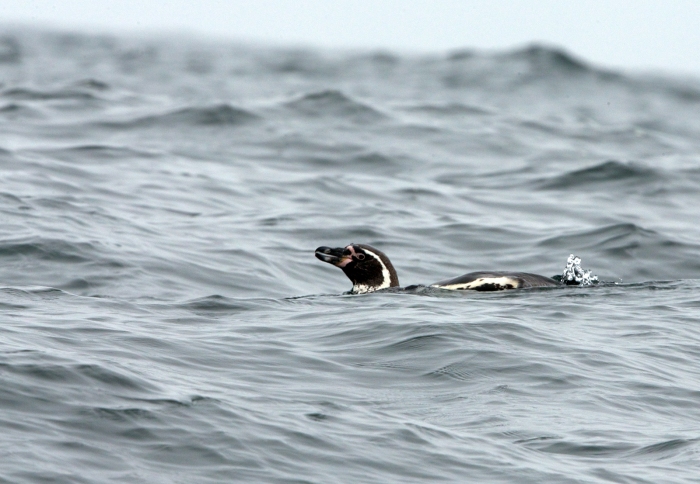Return of Bird of the Week: Humboldt Penguin
Most folks think of penguins as Antarctic birds. And, for the most part, they are. But like most things involving birds, there are exceptions to every rule. For penguins, one exception is the Humboldt Penguin, which ranges within a few degrees south of the equator.
All of the Humboldt Penguins WC has seen and photographed have been from a small boat bouncing in the waves and chop off the coast of South America. So the photos aren’t all that wonderful.

Humboldt Penguin, Pucasana, Peru
As you might guess from its appearance, it’s a cousin to the Magellanic Penguin that was featured last week. The Humboldt is named after the cold water current that runs up the west coast of South America – which in turn is named after Alexander von Humboldt, an explorer. Pucasana Island, on the central coast of Peru, where these photos were taken, is the furthest north breeding colony at about 8° South latitude. But there are breeding colonies scatters south to the southern end of Chile.

Humboldt Penguin pair engaged in courtship behavior, Pucasana Island, Peru
Humboldts are unusual because they can double-clutch – nest twice a year. Reproduction seems to be driven by food availability, which in turn is dependent on the El Niño climate cycles. Despite that breeding advantage, Humboldts are threatened. Overfishing, climate change and ocean acidification appear to be the main culprits. Humboldts are also subject to a high rate of egg mortality due to flooding of nests during ocean storms, accidental breakage, and predation.
That’s going to do it for penguins. WC has seen two more species, Galapagos and Emperor, but doesn’t have decent photos of either. We’ll shift from flightless birds to highly flighted birds next week.
For more bird photos, please visit Frozen Feather Images.

Humboldt Penguin swimming, c. 10 miles off-shore, Peru
Aw, I will miss the penguins. I love penguins. My spirit birds.
But I look forward to learning about the high fliers.